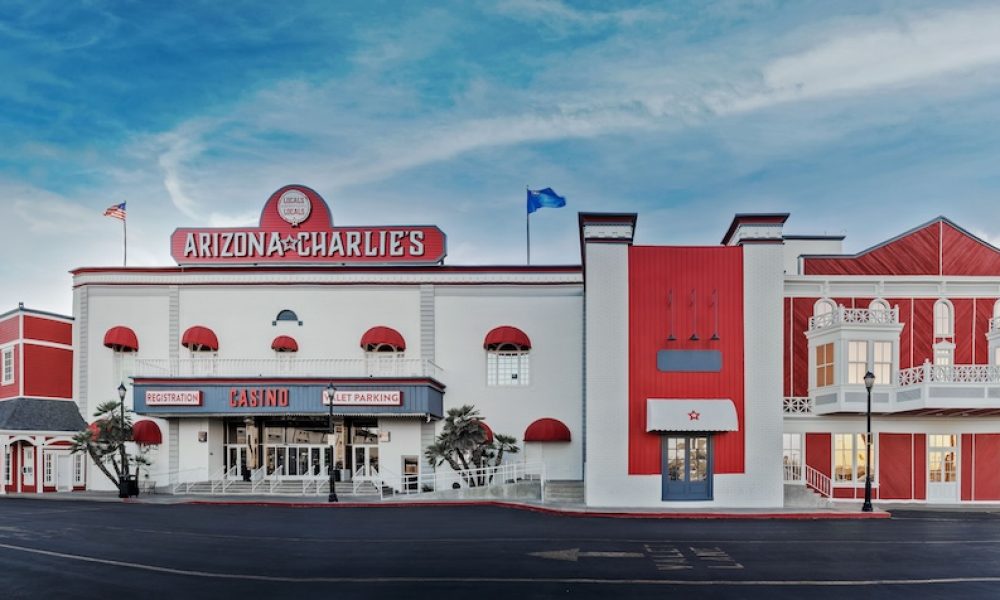Golden Entertainment reported a strong showing from its Las Vegas casinos that serve neighborhood residents, but revenue and earnings dipped due to a slowdown of tourism on the Strip.
In the second quarter, Golden’s operations generated revenue of $163 million in revenue and EBITDA of $38 million.
“Our results were impacted primarily by significantly lower table-game hold in Laughlin and the widely reported summer slowdown on the Las Vegas Strip,” said Charles Protell, Golden’s president and chief financial officer. “Our Nevada locals casinos continue to demonstrate strong performance in the second quarter, posting their highest quarterly EBITDA for the past two years and growing EBITDA for the third consecutive quarter.”
Revenue increased 3% to the prior year, with EBITDA up 7%, largely driven by the performance of Golden’s two Las Vegas locals casinos, which grew EBITDA by over 9%, Protell said.
Margins improved as well, up 170 basis points from last year to over 46% for this segment, Protell said.
“We’re seeing a strong performance of our local properties as we move into the third quarter and anticipate this segment will be the biggest beneficiary in 2026 from recent legislation providing tax relief on tips, overtime, and additional tax deductions for seniors,” Protell said.
In the casino segment, for the second quarter, revenue was down 3% and EBITDA was down 5%, mostly related to low table game hold in Laughlin, Protell said.
“We had a stronger event calendar in Laughlin this quarter that featured a concert and a rodeo and drove higher revenue, but our table games held less than 10%, which negatively impacted EBITDA by $1.5 million,” Protell said. “Normalizing for unusually low hold would have resulted in increased EBITDA in Laughlin and stable year-over-year EBITDA for the Nevada resorts segment.”
At The Strat, EBITDA increased over the first two months of the quarter, but Protell said the property experienced “meaningful slowdown in June consistent with other Strip properties.”
Strat occupancy for the quarter was 69%, down 4% from last year. But in June, occupancy fell to 60%, down from 76% compared to prior year, Protell said.
“EBITDA for The Strat was down only 5% year-over-year despite the challenging environment, as we aggressively managed costs to mitigate the impact of lower revenue,” Protell said. “Weaker Strip demand continued into July, but we’re seeing stabilization of bookings in August and remain optimistic about the outlook in the fourth quarter, and first quarter of 2026, where we should benefit from increased attendees at the Las Vegas Convention Center and overall group business in the city.”
For the tavern business, Protell said they mentioned on the first-quarter call that the promotional environment could negatively impact performance in the second quarter and it did. Revenue was down 7% year over year, even with increased reinvestment in the quarter.
“Our reinvestment rate remains at levels well below our peers and lower than our casinos, and we don’t anticipate increasing our tavern reinvestment beyond where we are currently,” Protell said. “We saw the largest declines in revenue in April, where in addition to declining volume, we experienced lower hold than normal. We’re also experiencing lower volume during our late-night shifts, which cater to Strip workers in tip positions, but we expect this to improve with improved strip business in the fourth quarter and in 2026.”
In July, Protell has seen tavern EBITDA stabilize compared to last year, as promotional activity in the market has been reduced.
“We’re confident that we’ll see improved tavern performance in the back half of the year and we have two new builds scheduled to open over the next six months,” Protell said. “We see the business volatility of the summer abating in the fall and we believe there will be meaningful tailwinds from increased Strip visitation, as well as the recent tax legislation that will support near-term organic growth at all our properties.”




